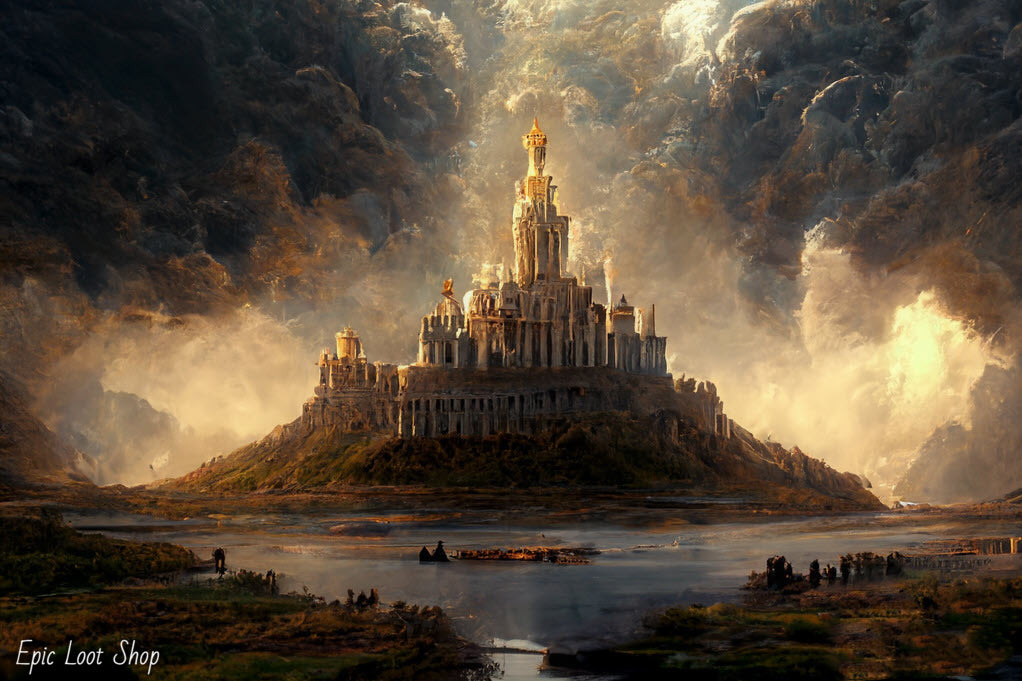Asgard mythology
Asgard is a realm in Norse mythology. The world of the gods was presided over by Odin, the highest and supreme ruler of the Æsir tribe of deities. The Asgardian civilization developed out of a previous world inhabited by the race of giants. Together they founded a vast kingdom, their world is known as Asgard. Valhalla, the great hall of Odin, is east of Asgard in an area called Gladsheim. Valhalla's magnificent halls are said to be packed and roaring with an army that fights every day, dies and comes back every night. On these days it is said that Odin will feast in Valhalla with his chosen heroes until Ragnarök.
What God lives in Asgard?
There are many Gods in Asgard, and they have many different names. Most of them have a title as well, such as All-Father or Lord of the Dark Elves. The following is a list of some of these gods and Goddesses, along with their titles and spheres of influence:
-The All-Father: God of all the races, creator of the universe, lives in Valhalla
-Loki: God of Chaos and Trickery; brother to Odin; lives in Asgard
-Tyr: God of War; son to Odin; lives in Valhalla
-Thor: God of Thunder; son to Odin; lives in Asgard
-Freya: Goddess of Love; sister to Freyr (God of Fertility); lives in Asgard
-Freyr: God of Fertility; son to Njord (God of Wind); lives in Asgard
-Idunn: Goddess of Youth; daughter to Bragi (God of Poetry); lives in Asgard
-Bragi: God of Poetry; son to Odin; lives in Asgard
-Niord: God of Sea and Wind; son to Freyja (Goddess of Love); lives in Asgard
...and many more!
Where is Asgard located in mythology?
It is located in the middle of the nine realms and is also known as Ásgarðr, which simply translates to "Enclosure." The gods' name for it translates to "Home of the Aesir," which was decided on after they decided that there was no better option than to stay on Earth. Like Earth, Asgard features many landmarks and vast expanses populated with plants and animals. However, because it is located in another realm, the sky of Asgard may be different from that of Earth; for example, some accounts say that the sun and moon are much larger there than here. The location of Asgard does not seem to be available through any type of map, so it remains a mystery where this mythological city can be found.
Can humans go to Asgard?
Asgard is an old place; the first eight humans were created there. It's also up high – so much that it's above the clouds. That last bit is important to remember: Asgard isn't just "a city." It's a city that can only be reached by crossing Bifröst Bridge – a bridge that only gods and some humans can cross. This means that if you're not a god or closely related to one (like the aforementioned humans), you can't go there. And if you do manage to get to Asgard without being invited by someone who lives there, the gods will immediately attack you with their weapons. They'll also turn you into a stone so that they never have to look at you again.
Who destroyed Asgard Ragnarök?
In Norse mythology, Ragnarök is a series of prophesied events that will be fulfilled in the future, including a great battle foretold to ultimately result in the death of a number of major figures (including the gods Odin, Thor, Týr, Freyr, Heimdallr, and Loki), the occurrence of various natural disasters and the submersion of the world in water. However, it is said that afterwards, the world will resurface anew and fertile, the surviving and returning gods will meet, and there will be a future golden age called the "Ages of Man".
At its most basic level, Ragnarök means "fate of the gods" or "the doom of the gods", so while it is difficult to say who exactly caused this destruction to happen, we can say that it was fate. The Norse gods knew they would ultimately end up dying during Ragnarök (in fact Odin begins preparing for his death at Ragnarok during his quest for wisdom in other myths) and they knew they would have to fight against destructive forces like fire giants and wolves.
Who ruled Asgard after Odin?
Asgardian succession was inextricably tied to the leadership of Odin, who passed his powers on to his son following his death. Although it's believed that Odin may have had another son prior to his death, this son was never seen or mentioned in any Asgardian lore, and it was assumed he died young.
The next heir to the throne of Asgard was Balder, second-born son of Odin and Frigga. Balder was beloved by all of Asgard—even the realm's most fearsome enemies gave him their respect, as they knew he would be a kind and just king. However, Balder was killed by Loki after the latter tricked him into throwing a spear at a tree which contained one of Loki's magical illusions.
Balder's untimely death created a power vacuum in Asgard that had no clear resolution in sight—Thor was still too young to take up the mantle of leadership, and even if he were old enough, Odin had forbidden him from taking the throne while he still lived. The future of Asgard seemed bleak... until an even more surprising candidate came forward: Loki himself.
conclusion
Asgard mythology is a rich and interesting one. The gods of Asgard are excellent examples of a race of fictional higher power who have evolved over time to fit the needs and desires of the people they serve. Though they have been used for evil, intent on the destruction of mankind (most notably by Loki), their overall impact spans throughout all of human history, shaping religious beliefs and influencing some of the world's greatest works of art.




Hinterlassen Sie einen Kommentar